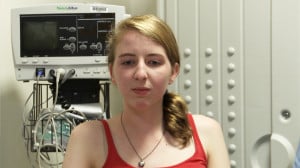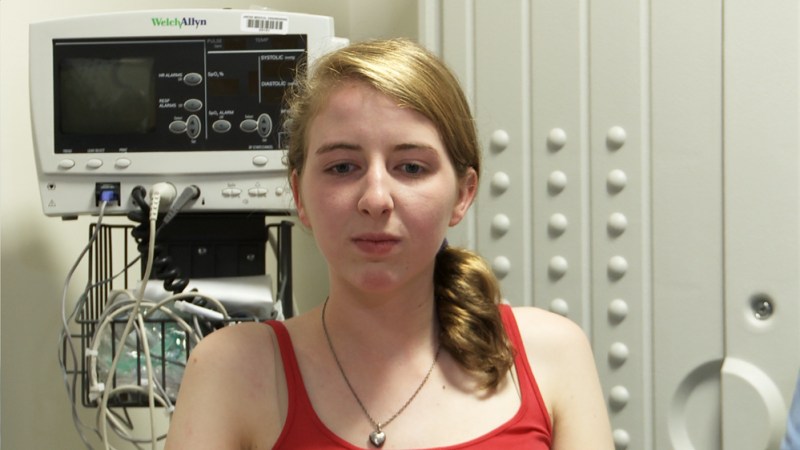
Kristen Powers ’16 was just three years old when her mother began showing signs of Huntington’s disease. At such an early age, Powers watched her young, lively mother slowly lose her abilities to walk, talk and even reason.
At age 11, Powers learned that she had a 50 percent chance of inheriting the genetic disease. Although she wanted to get tested sooner, Powers was forced to wait until she turned 18 and was legally able to make that decision.
Despite the high likelihood of inheriting the debilitating condition, Powers said that she never doubted her choice to get tested.
“I wanted to be able to have more power behind my life decisions,” Powers explained.
At age 13, Powers began to film a documentary chronicling her time dealing with her mother’s illness and the possibility of inheriting it herself. The film, titled “Twitch,” is still in production, but has already gained critical attention.
The film even deals with her mother’s death in 2011, at age 45. Powers had not yet been tested.
When not working on “Twitch” as a high school student in Chapel Hill, N.C., Powers channeled her energies towards starting a sustainable farming campaign that gained national recognition. After being accepted to Stanford for the Class of 2016, her farm project secured her a spot as one of three freshmen in Stanford’s entering class selected for a Compass Fellowship, a program sponsored by the Hass Center for Public Service that fosters the growth of student entrepreneurship.
At the end of her senior year of high school, Powers’ documentary landed her a TEDXTeen Talk. Jess Teutonic, the curator of TEDxTeen, worked closely with Powers in the weeks preceding her talk, which was filmed before she received her test results.
“I don’t think I have ever met a more poised, graceful, courageous, brave young woman in my life,” Teutonic said. “It was in the most challenging moment in her life, and she shined.”
After hearing about her Stanford acceptance, receiving her Compass fellowship and giving her TEDxTeen talk, Powers was tested on May 18, 2012. Her results came back negative less than two weeks later.
According to Powers, the documentary focuses on the decision-making behind genetic testing and the how the disease itself is “often stigmatized.”
Powers said that while her mother was in the throes of the disease, she was often treated as though incapable of taking care of herself and became the subject of complaints by neighbors for supposedly “being drunk all the time.” The discrimination even extends to Kristen and her brother, who also tested negative, since — as potential carriers of the disease — they are not eligible for life insurance at any time in their lives.
Powers said that she hopes the film will raise awareness of Huntington’s disease and start a more serious national conversation about the stigma and potential cure. She added that she hopes the documentary helps “HD families come out of the closet” and join the movement.
Although her film isn’t even finished yet, Powers was recently featured on a CBS Sunday Morning segment on genetic disease testing, where she talked about her project.
Powers has continued to raise funds for her documentary, which she views as a source of support for other individuals going through the same process with genetic testing for Huntington’s or other diseases.
“It fit perfectly with my passion of using film as a tool for education and my knowledge and experience with this specific topic,” Powers said. “I didn’t know anyone else covering the youth perspective of genetic testing. Most of the documentaries and stories coming out related to Huntington’s Disease completely glazed over those who had just arrived at [the] testing age of 18 years.”
However, Powers identified the biggest hurdle she hopes to jump with her film as boosting awareness about the disease, and how it affects not just victims but entire families.
“The biggest problem, I think, with Huntington’s disease is the fact that it’s very hidden and no one wants to talk about it,” Powers said. “I’m really hoping Twitch will get people to work together towards this common goal of curing Huntington’s disease and make it easier for people affected by it to live with it and make it so that less people feel alone, like I did.”
